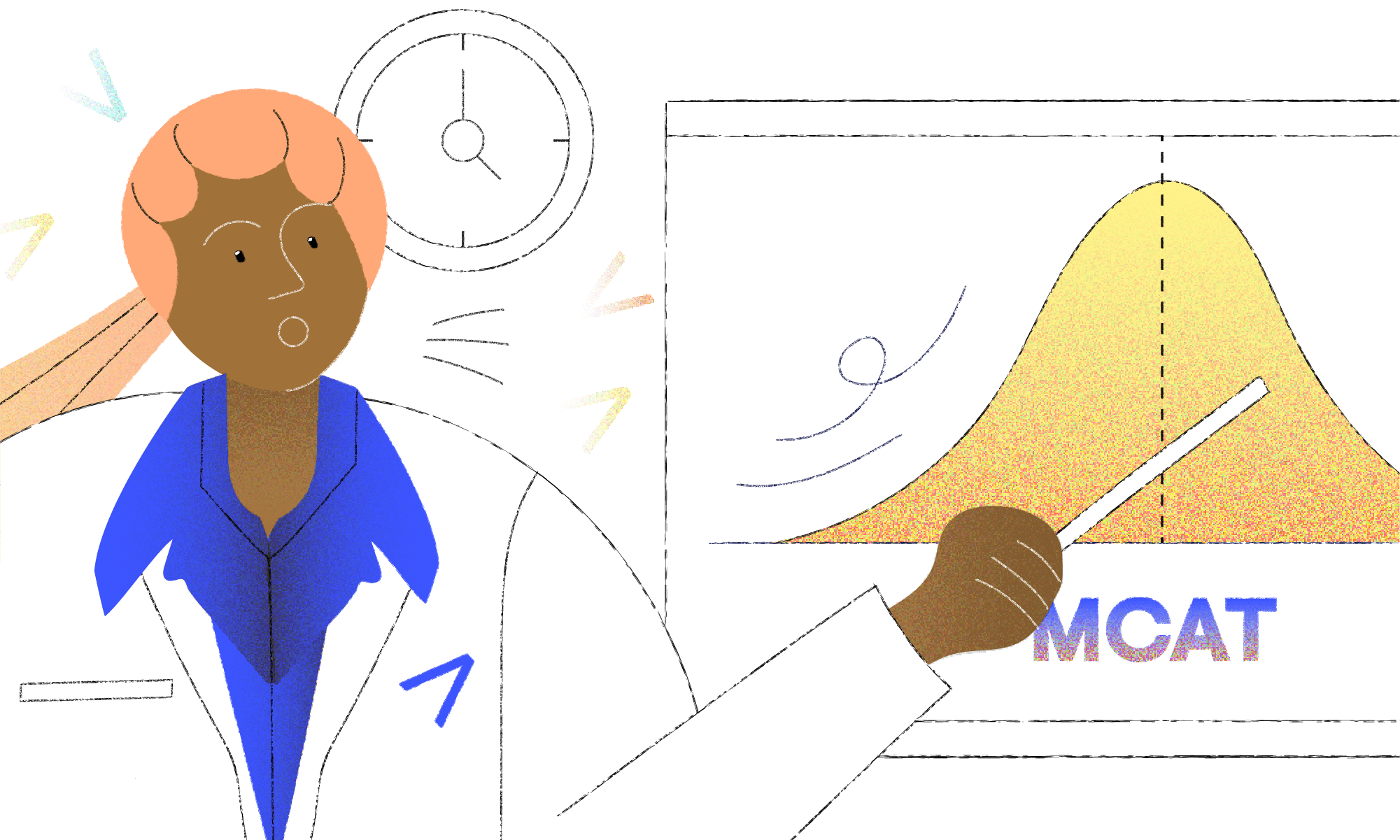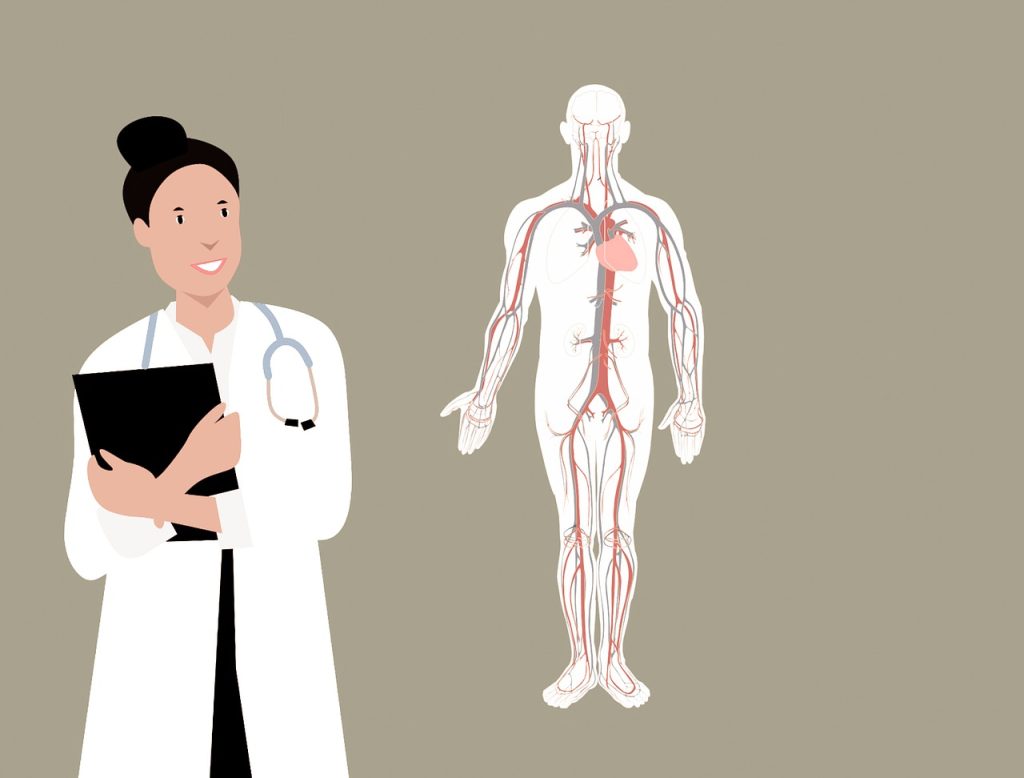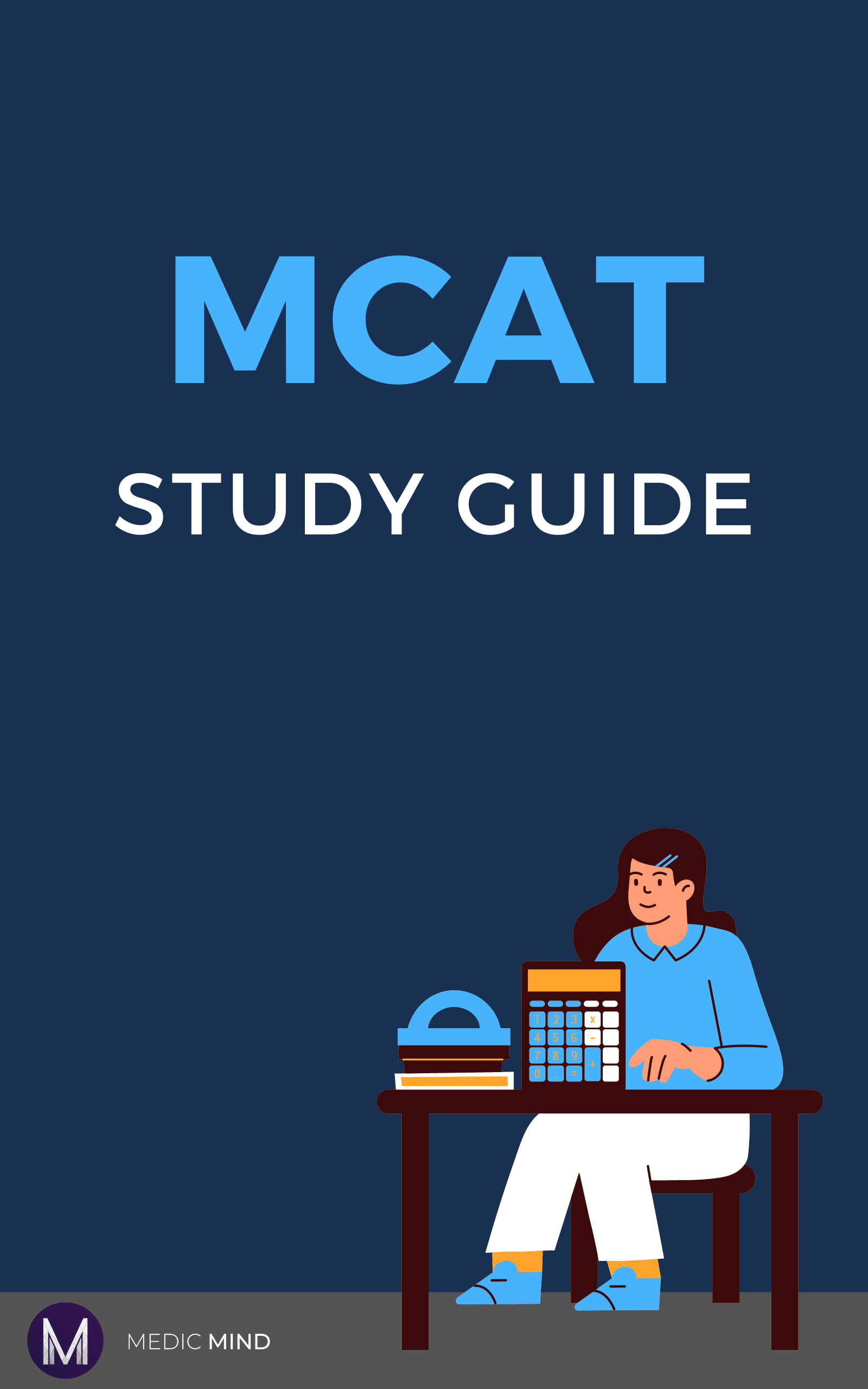

What is the MCAT?

Rebecca Nolan
Group Content Manager
Studying Medicine in the USA and Canada
Unlike in the U.K., all medicine programs in the USA are postgraduate degrees. Applicants must have completed a four-year undergraduate degree in a pre-med related subject such as biology, chemistry or organic chemistry. Each USA institute has its own prerequisites regarding what undergraduate degrees they will accept. Therefore, it is sensible to check your preferred school’s prerequisites to ensure you meet the requirements of your chosen undergraduate degree.
With world-recognized schools and highly accredited programs, attending medical school in America and Canada is highly competitive. The programs are challenging but highly rewarding, with an emphasis on clinical experience and the development of diagnostic skills. Medical programs offered in the USA and Canada are titled Doctor of Medicine (M.D.) or Doctor of Osteopathic Medicine (D.O.). Both programs offer full medical training, and graduates can practice medicine in their chosen speciality after completing either. The D.O. programs include additional classes on osteopathic manipulation.
If you are hoping to pursue a program in medicine in America or Canada, you will likely complete the Medical College Admissions Test (MCAT). The Association of American Medical Colleges (AAMC) administers and develops this standardized, multiple-choice exam. It is completed on the computer and consists of four sections.


The MCAT Exam
This is a computer-based exam; candidates complete the Medical College Admissions Test at a pre-booked date and time at official test centres. It is advisable that candidates give themselves around 3-5 months to prepare for their MCAT before their exam date. Candidates should complete the MCAT before applying to medical schools in America.
The Medical College Admissions Test contains 230 questions over seven and a half hours; a mammoth exam, I know! But this time does include one 30-minute break and two 10-minute breaks. The MCAT aims to test a candidate’s knowledge of basic scientific concepts, as well as their critical thinking and reasoning abilities. The exam consists of four sections:
- Chemical and Physical Foundations of Biological Systems
- Biological and Biochemical Foundations of Living Systems
- Psychological, Social, and Biological Foundations of Behavior
- Critical Analysis and Reasoning Skills (CARS)
Each of the three scientific sections contains ten passages with 4-7 related questions; these sections also contain 15 individual questions each. The CARS section contains nine passages.
The three scientific sections of the Medical College Admissions Test test the candidates’ scientific knowledge. It does this by testing their knowledge of scientific facts and concepts and requiring applicants to integrate and analyse information from different formats, such as databases and graphs. Candidates must also show they have an understanding of scientific study techniques, including control variables, correlations and causations.
How Many Questions are on the MCAT Exam?
Each section of the MCAT exam contains a different number of questions; here is a breakdown of each:
| Biological and Biochemical Foundations of Living Systems | Number of questions: 59 Time allocation: 95-minute section Topics covered: Basic biology, organic chemistry, inorganic chemistry, and biochemistry |
| Chemical and Physical Foundations of Biological Systems | Number of questions: 59 Time allocation: 95-minute section Topics covered: Basic biochemistry, biology, general chemistry, organic chemistry, and physics |
| Psychological, Social, and Biological Foundations of Behavior | Number of questions: 59 Time allocation: 95-minute section Topics covered: Introductory psychology, sociology, and biology |
| Critical Analysis and Reasoning Skills | Number of questions: 53 Time allocation: 90-minute section Topics covered: Passages from social sciences and humanities disciplines |
In total, the MCAT exam consists of 230 multiple-choice questionsand takes approximately 7.5 hours to complete, including breaks.
MCAT Sections Explained
Biological and Biochemical Foundations of Living Systems
The MCAT exam’s Biological and Biochemical Foundations of Living Systems (BBLS) section evaluates an applicant’s comprehension and knowledge of fundamental biology and biochemistry concepts related to living organisms. This section consists of 59 multiple-choice questions and lasts for 95 minutes. It accounts for approximately 25% of the total MCAT score.
The BBLS section covers four main areas: Molecular Biology, Genetics, Cellular Biology, and Human Anatomy and Physiology. The topics tested include:
- Molecular Biology: DNA replication, transcription, and translation, gene regulation, and protein structure and function.
- Genetics: Inheritance patterns, genetic disorders, and population genetics.
- Cellular Biology: Cellular structures, functions, communication, and metabolism.
- Human Anatomy and Physiology: Human organ systems and their functions, homeostasis, and disease mechanisms.
The section evaluates an applicant’s capacity to apply scientific principles and concepts to real-world situations and scenarios, particularly those encountered in medical practice. The questions assess knowledge, problem-solving skills, critical thinking, and the ability to analyze and interpret data.
Chemical and Physical Foundations of Biological Systems
The Chemical and Physical Foundations of Biological Systems (CPBS) section of the MCAT exam tests an applicant’s knowledge and understanding of the fundamental chemistry and physics concepts related to biological systems. The section is composed of 59 multiple-choice questions and lasts for 95 minutes. The CPBS section comprises approximately 25% of the total MCAT score.
The CPBS section covers four main areas: General Chemistry, Organic Chemistry, Biochemistry, and Physics. The topics tested include:
- General Chemistry: Atomic structure, periodicity, stoichiometry, solutions, gases, and thermodynamics.
- Organic Chemistry: Structure and bonding, nomenclature, functional groups, stereochemistry, reactions, and mechanisms.
- Biochemistry: Macromolecules, enzymes, metabolism, and genetics.
- Physics: Mechanics, electricity and magnetism, waves and optics, and thermodynamics.
The section tests an applicant’s ability to apply scientific concepts and principles to real-world situations and scenarios, especially those encountered in medical practice. The questions are designed to test knowledge, problem-solving skills, critical thinking, and the ability to analyze and interpret data.
Psychological, Social, and Biological Foundations of Behavior
The Psychological, Social, and Biological Foundations of Behavior (PSBB) section of the MCAT exam evaluates how an applicant understands the fundamental concepts in psychology, sociology, and biology to behavior and mental processes. This section consists of 59 multiple-choice questions and lasts 95 minutes, comprising approximately 25% of the total MCAT score.
The PSBB section tests three primary areas: Introductory Psychology, Introductory Sociology, and Biological and Biochemical Processes Related to Behavior. The topics covered include:
- Introductory Psychology: Sensation and perception, learning and memory, motivation and emotion, and social psychology.
- Introductory Sociology: Social structures, social institutions, social inequality, and social change.
- Biological and Biochemical Processes Related to Behavior: The nervous system, endocrine system, and immune system; genetic and environmental influences on behavior; and the effects of drugs and toxins on behavior.
The PSBB section assesses an applicant’s ability to apply scientific concepts and principles to real-world scenarios, especially those relevant to medical practice. The questions test knowledge, problem-solving skills, critical thinking, and the ability to analyze and interpret data.
Critical Analysis and Reasoning Skills
The Critical Analysis and Reasoning Skills (CARS) section of the MCAT exam assesses an applicant’s ability to read and comprehend complex passages, analyze arguments, and make reasoned judgments about them. This section consists of 53 multiple-choice questions and lasts 90 minutes, comprising approximately 25% of the total MCAT score.
The CARS section evaluates an applicant’s ability to identify and analyze arguments, evaluate evidence, and draw conclusions based on the information provided. The section aims to test the applicant’s critical thinking and reasoning skills, including understanding complex texts and making inferences based on evidence.
The section contains passages from various subjects, including humanities, social sciences, and natural sciences, to ensure that all applicants have an equal chance to demonstrate their analytical and reasoning abilities. The passages are followed by questions that require applicants to evaluate and analyze arguments, identify assumptions, and draw logical conclusions based on the information provided.
To prepare for the CARS section, developing strong reading comprehension and analytical skills is essential. Applicants should practice reading and analyzing complex texts from various disciplines, paying particular attention to the author’s argument, evidence, and assumptions.
Overall, it is helpful to think of the Medical College Admissions Test as a critical reasoning exam which requires previous scientific knowledge. You will need a good foundation of scientific knowledge and concepts, but being able to recite these concepts will not guarantee you a high score.
What Skills are Tested on the MCAT Exam?
The AAMC highlights that candidates require four Scientific Inquiry and Reasoning Skills (SIRS) to achieve competitive scores in the Medical College Admissions Test. These are:
- Knowledge of Scientific Concepts and Principles
- Scientific Reasoning and Problem Solving
- Reasoning About the Design and Execution of Research
- Data-Based and Statistical Reasoning
To challenge the candidates, the test presents familiar content in new ways. Meaning applicants must use the information in the passage and combine it with their basic scientific knowledge. Using both these sources, candidates must produce reasonable judgements and logical answers.
In short, candidates can’t just know facts or comprehend data to score highly on the Medical College Admissions Test. They must be able to apply concepts, solve problems, understand how studies are designed and be able to critique this.

Booking the MCAT
With all this said and done, if you still dream of studying in the USA or Canada, you will need to book an MCAT exam slot. Candidates can register and book a date for their exam through the AAMC website.
When scheduling an exam date, it is important to note the release date for the scores. Equally, it is important to schedule the Medical College Admissions Test far enough in advance to allow for adequate preparation and allow for test scores before the application deadline. Furthermore, you will need to consider other important dates and exams that you have in the future to avoid undue stress.
Medic Mind offers Medical College Admissions Test preparatory material and MCAT tutoring. These materials and sessions can better prepare you for how the exam is structured, how to extract information best and how to apply the information to the questions. So if you hope to begin your medical schooling in the USA and Canada, it is time to get cracking!
General tips and informative articles on the MCAT:
MCAT differs from other medical exams:
FAQs
The MCAT, or Medical College Admission Test, is a standardised, multiple-choice examination designed to assess a candidate’s problem solving, critical thinking, and knowledge of natural, behavioural, and social science concepts and principles prerequisite to the study of medicine. It is one of the primary tools used by medical school admissions committees to evaluate applicants.
The MCAT is intended for prospective medical students who are applying to medical schools, primarily in the United States and Canada. It is also accepted by some schools in other countries. It’s advisable for candidates who have completed at least the prerequisite undergraduate science courses to consider taking the MCAT.
The MCAT exam covers four main areas: Biological and Biochemical Foundations of Living Systems; Chemical and Physical Foundations of Biological Systems; Psychological, Social, and Biological Foundations of Behavior; and Critical Analysis and Reasoning Skills. These sections assess knowledge of scientific concepts as well as reading comprehension, analytical, and problem-solving skills.
Rebecca studied at History of Art at UEA before deciding on a career in education. Having worked with children from 3-18 years old, she has worked both in the UK and international schools including Dubai and Zurich, where she was Head of Primary. Rebecca has extensive knowledge in curriculum design and has worked with various curricular models including English National Curriculum and International Baccalaureate.






Was this article helpful?
Still got a question? Leave a comment